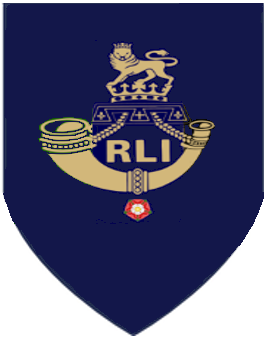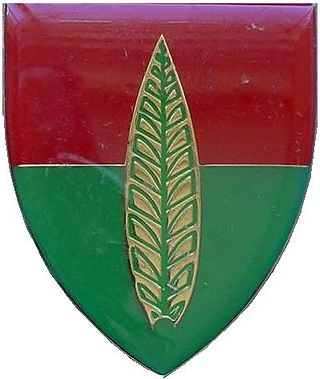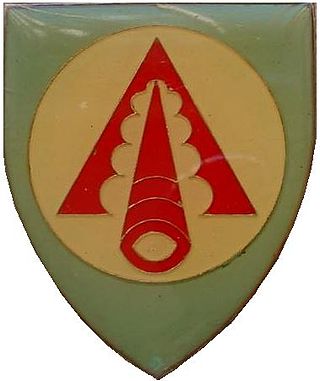
The South African Army is the principal land warfare force of South Africa, a part of the South African National Defence Force (SANDF), along with the South African Air Force, South African Navy and South African Military Health Service. The Army is commanded by the Chief of the Army, who is subordinate to the Chief of the SANDF.

The South African Army Infantry Formation supervises all infantry within the South African Army.

The Rand Light Infantry (RLI) is an infantry regiment of the South African Army. As a reserve unit, it has a status roughly equivalent to that of a British Army Reserve unit or United States Army National Guard unit.

The Johannesburg Light Horse Regiment, is a reserve armoured car reconnaissance unit of the South African Army.

The Blaauwberg Armoured Regiment is a reserve armoured regiment of the South African Army.

The South African Army Artillery Formation is the controlling entity of all South African Army artillery units. It draws much of its history from the South African Artillery, established in 1934 but with roots that reach back to 1921. The formation consists of both regular and reserve units. There is a separate South African Army Air Defence Artillery Formation that directs army anti-aircraft warfare units.

The Autshumato Anti-Aircraft Regiment is a reserve air defence artillery regiment of the South African Army.

The Rhodesian Security Forces were the military forces of the Rhodesian government. The Rhodesian Security Forces consisted of a ground force, the Rhodesian Air Force, the British South Africa Police, and various personnel affiliated to the Rhodesian Ministry of Internal Affairs. Despite the impact of economic and diplomatic sanctions, Rhodesia was able to develop and maintain a potent and professional military capability.

44 Parachute Brigade was a parachute infantry brigade of the South African Army. It was founded on 20 April 1978, by Colonel Jan Breytenbach, following the disbandment of 1 SA Corps and the battle of Cassinga. Upon formation, the brigade was commanded by Brigadier M. J. du Plessis, who was assigned the task of establishing by working with the Parachute Staff Officer, Colonel Jan Breytenbach. At the time du Plessis was the commanding officer of the Orange Free State Command and had previous experience serving in 1 Parachute Battalion. Breytenbach had also been a member of 1 Parachute Battalion and had also founded the South African Special Forces Brigade and 32 Battalion. The location that was chosen for the brigade's headquarters was in the lines of the OFS Cmd Headquarters, next to the old Tempe Airfield in Bloemfontein.

The South African Army Air Defence Artillery Formation is the controlling entity of all South African Army Air Defence Artillery units. This Formation consists of both regular and reserve units.

7 South African Infantry Division was a formation of the South African Army, active from the 1960s to 1999.

The OR Tambo Regiment is a reserve infantry regiment of the South African Army.

7 Light Anti-Aircraft Regiment is a reserve force regiment of the South African Army Air Defence Artillery Formation.

10 Anti-Aircraft Regiment is an anti-aircraft artillery regiment of the South African Army.

The iWombe Anti-Aircraft Regiment is a reserve air defence regiment of the South African Army.

Galeshewe Anti-Aircraft Regiment is a reserve air defence artillery regiment of the South African Army.

The Madzhakandila Anti-Aircraft Regiment (MAAR), formerly 44 Light Anti-Aircraft Regiment, is an air defence regiment of the South African Army.

Regiment Overvaal is a reserve force regiment of the South African Army Air Defence Artillery Formation.
In 2019 the South African National Defence Force (SANDF) renamed 52 of its 66 army's Reserve Force units. The changes were made to include more indigenous African references in the unit names, which had previously had a colonial and apartheid-era influence. The SANDF's Name Review Steering Committee led the process in consultation with the units, past members and communities. Name suggestions came from the units, with the army's director of reserves, Brigadier General Gerhard Kamffer providing a list of suggestions. Of the renamed units 26 took names relating to indigenous African military history and 25 took names relating to the apartheid and colonial era. Units were initially given three years to transition their insignia to the new names, this was later extended to 31 April 2023. One unit scheduled to change its name, the Cape Town Highlanders, is though to have been granted permission to abandon the move in 2022.





















